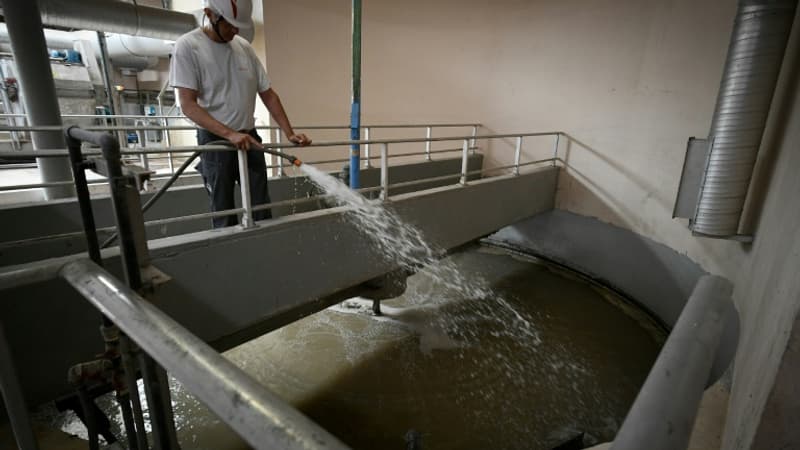The State has decided to set restrictions at the national level on the extraction of water from certain classified industrial sites, in times of drought, according to a decree published this Wednesday in the Official Gazette. This text is addressed to “installations classified for environmental protection” (ICPE), industrial or even agricultural sites at risk of nuisance or contamination. The measure refers to sites whose annual water extraction exceeds 10,000 m3 and which are subject to authorization or registration. But the decree also defines the exemption terms for certain facilities.
Until now, restrictions on water could be decided by prefectural decrees, in case of tensions over the resource. This “national decree will not prevent more restrictive measures from being taken at the local level,” underlines the Ministry of Ecological Transition.
many exceptions
According to this text, a situation of “vigilance” of the drought will lead to “a greater awareness of the personnel on the norms for the good use and saving of water according to a written procedure exposed in the place”. In the event of an alert, water extraction will be reduced by 5%. It will be -10% in case of “reinforced alert”, and -25% in case of crisis.
Water collection facilities intended for human consumption (drinking water or bottled water), for health establishments and social services, for watering animals, for “pushed flow” agri-food processing (treatment of perishable agricultural raw materials) are exempt. Also excluded are drug production sites “of great therapeutic interest or that contribute to a public health policy defined by the Ministry of Health” and waste treatment sites. This decree also does not affect electricity production sites, particularly nuclear power plants, or renewable energy production facilities (biomass, biogas, etc.).
Source: BFM TV


